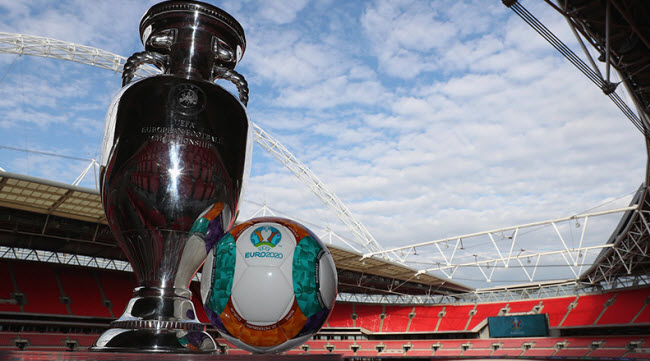The UEFA European Championship, also known as the “Euro,” is the premier football competition in Europe. Held every four years, this tournament brings together the best national teams from across the continent to compete for the prestigious title. With its origins in Europe, the birthplace of football, the Euro is one of the most-watched sporting events worldwide, second only to the FIFA World Cup. Some even claim that if teams like Brazil and Argentina were allowed to participate, it would resemble a mini World Cup. Alongside the honor of winning the title, the champion also earns a spot in the FIFA Confederations Cup (if organized) and significant financial rewards.
To participate in the European Championship, a nation must be a member of the Union of European Football Associations (UEFA). Each team must go through a qualification process, with 23 teams qualifying alongside the host nation. Historically, Germany and Spain have been the most successful teams in the tournament, each winning three titles, with Spain notably achieving back-to-back victories in 2008 and 2012.
The History of the European Championship
The origins of the European Championship date back to 1927 when the French Football Federation’s director, Henri Delaunay, proposed the idea of a continental football competition. However, due to political issues and the outbreak of World War II, it was challenging to implement this idea. Even after Delaunay became UEFA’s first general secretary, it took several more years before the dream materialized. In 1960, five years after Delaunay’s death, the inaugural European Championship took place, with the trophy named in his honor. That tournament was held in France and featured four teams out of the 17 that initially entered the qualifiers. The Soviet Union won the first title by defeating Yugoslavia 2-1 in a tense final, while Spain withdrew from their match against the Soviet Union due to political tensions.
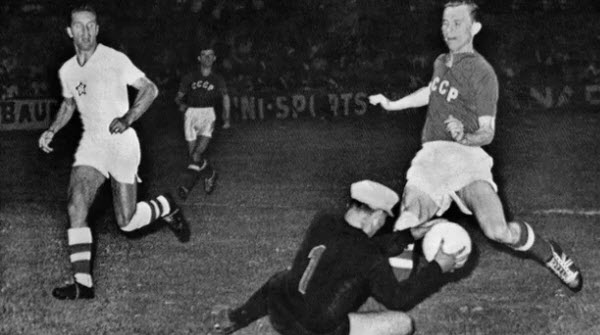
The next tournament, held in Spain in 1964, saw an increase in participation, with 29 teams entering the qualifiers. Spain emerged as the champion, defeating the defending champions, the Soviet Union, 2-1. Over time, the European Championship continued to grow, with more teams joining the qualification rounds. The 1976 edition, hosted by Yugoslavia, was the last tournament to feature only four teams and the final where host nations were required to qualify through group stages. In this edition, Czechoslovakia won the title by defeating West Germany through newly introduced penalty shootouts.
In 1980, Italy hosted the tournament, expanding the competition to eight teams. A group stage was introduced, with group winners advancing to the final, while second-place teams played for third place. In the following 1984 tournament, hosted and won by France, the format was adjusted so that the top two teams from each group would advance to the semi-finals instead of progressing directly to the final. The third-place play-off was also eliminated.
In 1992, Sweden hosted the European Championship, where Denmark—who had not originally qualified but was invited to replace disqualified Yugoslavia due to civil war—won the tournament in a shocking upset. Denmark’s victory demonstrated the unpredictable nature of the tournament.
Expansions and Notable Moments
In 1996, the number of teams in the tournament was expanded to 16, with the championship hosted by England. One of the highlights of this edition was the German team’s victory over the Czech Republic in the final, where Oliver Bierhoff scored the first-ever golden goal in a major international tournament, securing Germany’s first title as a unified nation. In 2000, the tournament was co-hosted for the first time by two nations, the Netherlands and Belgium, with France winning the title, adding to their World Cup title from 1998.
The 2004 tournament, hosted by Portugal, saw one of the greatest upsets in European football history when Greece won the title, defeating Portugal in the final. Spain dominated the next two editions, winning back-to-back titles in 2008 (held in Austria and Switzerland) and 2012 (held in Poland and Ukraine), making them the only team to defend their title successfully.
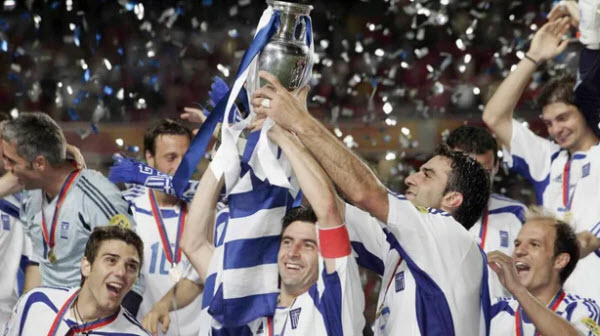
In 2016, the tournament was expanded again, this time to 24 teams, with the competition held in France. Portugal emerged victorious, winning their first-ever major title. The most recent edition, Euro 2020, was postponed to 2021 due to the COVID-19 pandemic and was unique in its format, with multiple cities across Europe hosting matches. Italy won the tournament, with the semi-finals and final held in London.
The European Championship Trophy
The UEFA European Championship trophy is engraved with the words “Coupe Henri Delaunay” in honor of its original proposer. The trophy was redesigned in 2008 to increase its size and reflect UEFA’s modern identity. The new version is made from sterling silver, weighs 8 kilograms, and is 60 centimeters tall—18 centimeters taller than its predecessor. It also features the names of the previous champions engraved on the back.
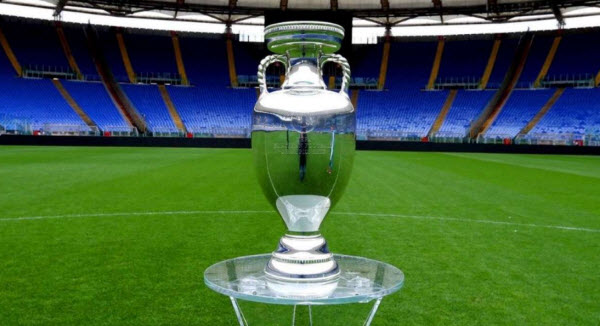
Along with the trophy, the winning team’s players and coaches receive gold medals, while the runners-up receive silver medals. Although there is no third-place play-off, UEFA briefly awarded bronze medals to semi-finalists in 2008, before discontinuing the practice in 2016.
Evolution of the Tournament Format
Before 1980, only four teams qualified for the finals of the European Championship. This was later expanded to eight teams, and in 1996, the tournament grew to 16 teams. Ironically, it was often easier for European teams to qualify for the World Cup than for the European Championship, as UEFA had 14 World Cup slots while the European Championship had only eight until its expansion.
The modern format involves 24 teams divided into six groups of four. The top two teams from each group, along with the best four third-place teams, advance to the round of 16, where the knockout stage begins.
European Championship Records
To date, Germany and Spain have been the most successful teams, each winning the tournament three times. Spain is the only country to have successfully defended their title, achieving this feat in 2012. Germany holds several tournament records, including the most matches played (53), most goals scored (75), and most wins (28). In 1984, France became the first country to win all their matches (5 out of 5) in a single tournament, while Denmark won the 1992 title with just two wins in five matches.
Portuguese forward Cristiano Ronaldo holds the record for the most goals in the tournament’s history, with 15, followed by French legend Michel Platini with 9.
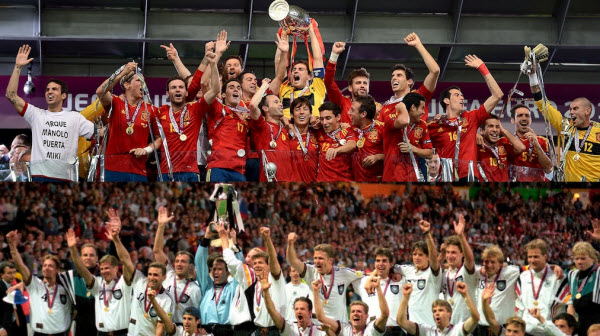
Growing Popularity and Viewership
The UEFA European Championship has become increasingly popular over the years. The 2016 tournament, which featured 51 matches, attracted a live global audience of over 2 billion viewers—100 million more than Euro 2012. Much of this increase came from new football fans in Brazil and China. The 2016 final between Portugal and France drew 600 million viewers worldwide.
UEFA European Championship Winners Table
| Year | Host Country | Winner |
|---|---|---|
| 1960 | France | Soviet Union |
| 1964 | Spain | Spain |
| 1968 | Italy | Italy |
| 1972 | Belgium | West Germany |
| 1976 | Yugoslavia | Czechoslovakia |
| 1980 | Italy | West Germany |
| 1984 | France | France |
| 1988 | West Germany | Netherlands |
| 1992 | Sweden | Denmark |
| 1996 | England | Germany |
| 2000 | Netherlands & Belgium | France |
| 2004 | Portugal | Greece |
| 2008 | Austria & Switzerland | Spain |
| 2012 | Poland & Ukraine | Spain |
| 2016 | France | Portugal |
| 2021 | Multiple Countries | Italy |
